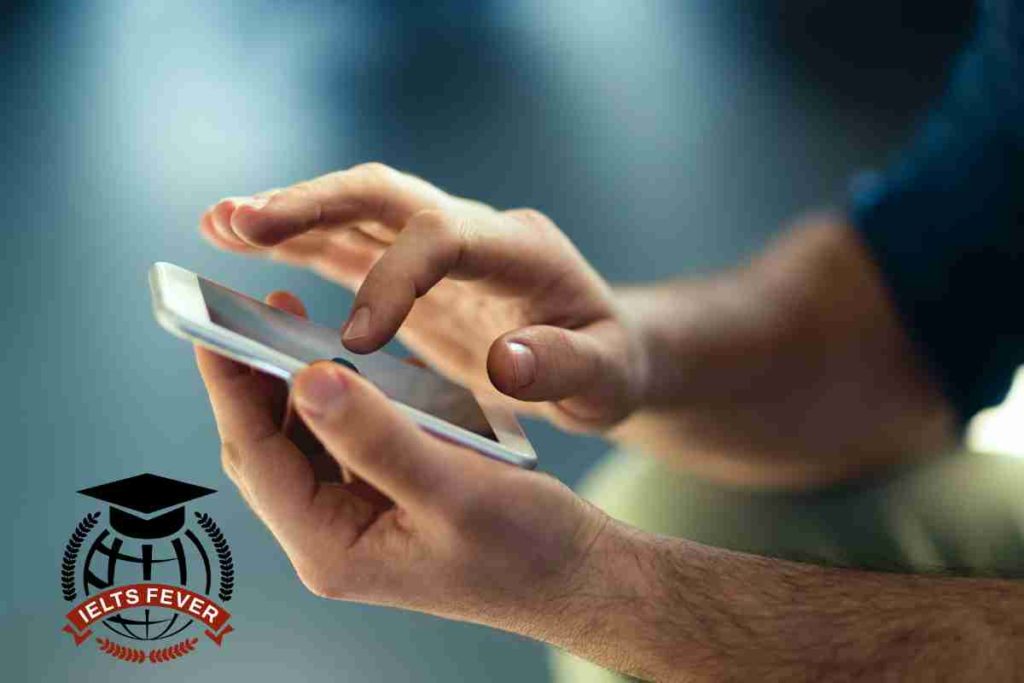Describe a time you used your cellphone/ smartphone to do something important
You should say:
- What happened?
- When it happened
- How important the cellphone/smartphone was
- And explain how you felt about the experience
Sample 1 Describe A Time You Used Your Cellphone/ Smartphone To Do Something Important
In today’s digitally driven world, cellphones play a pivotal role in our lives. A particular instance where my smartphone proved indispensable was when I had to relay critical information about an unexpected holiday to my colleagues via our office WhatsApp group.
This event transpired about six months ago. I was working as an administrative assistant in a local firm. Late one evening, I received an email from the higher management, declaring the next day as an impromptu holiday due to unforeseen circumstances. As part of my role, I was responsible for ensuring that this message reached all employees promptly.
My smartphone became the primary tool in accomplishing this task. I immediately drafted a concise yet detailed message, clarifying the situation and the holiday announcement. I then shared this information on our office’s WhatsApp group, which included all employees. Subsequently, I individually texted those who didn’t respond to ensure they received the news.
The role of the smartphone in this situation was paramount. It allowed me to disseminate important information swiftly, ensuring everyone was aware of the change in plans. Without it, I would have had to resort to time-consuming methods, potentially leading to confusion and miscommunication.
The experience left me feeling extremely grateful for the technology at our disposal. It was gratifying to know that I could fulfill my responsibilities effectively and efficiently, thanks to my smartphone. This incident underscored the significance of smartphones as powerful communication tools, enabling us to connect and share information instantaneously, regardless of time or place.
Follow ups of Describe A Time You Used Your Cellphone/ Smartphone To Do Something Important
Question 1 What do you usually do with a cellphone?
Answer – Cellphones serve a multitude of purposes in our daily lives. Primarily, we use them for communication, making calls and sending messages to stay connected with family, friends, and colleagues. Additionally, cellphones provide access to the internet, enabling us to browse websites, check emails, and engage in social media. They serve as a portable entertainment device, allowing us to listen to music, watch videos, play games, and read books. Cellphones also serve as a handy tool for productivity, with features like calendar management, note-taking, and document editing. Moreover, cellphones enable us to capture and share moments through photos and videos, serving as a convenient camera.
Question 2 What are the differences between young people and old people when using a cellphone?
Answer – There are notable differences between young and old people when it comes to using a cellphone. Young people tend to be more tech-savvy and adept at navigating various mobile applications and features. They are more likely to use cellphones for social media, entertainment, and communication purposes. In contrast, older people may use cellphones primarily for basic communication, such as making calls and sending messages. They may be less inclined to explore advanced features and may require assistance in using certain applications or settings. Moreover, young people are often quicker to adapt to new technologies and trends, while older individuals may prefer traditional methods of communication and may be more cautious about online activities.
Question 3 Which one is more important, using a cellphone to make phone calls or to read messages?
Answer – The importance of using a cellphone for phone calls or reading messages depends on individual preferences and needs. While phone calls allow for direct and real-time communication, reading messages provides the convenience of asynchronous communication. Phone calls can convey tone and emotions better, facilitating more meaningful conversations. On the other hand, messages offer flexibility, allowing for thoughtful responses and the ability to refer back to conversations. Ultimately, the importance of each function varies based on the context, urgency of communication, and personal communication style.
Question 4 Do you think there should be a law to stop people from making phone calls in public?
Answer – Whether there should be a law to stop people from making phone calls in public is a subjective matter. While excessive phone calls in public can be disruptive and intrusive to others, implementing a law to prohibit them may infringe upon personal freedoms. Instead, promoting etiquette and awareness regarding phone usage in public settings could be more effective. Encouraging individuals to be mindful of their surroundings, use headphones, or move to designated areas for phone calls can help maintain a balance between personal communication and respect for others’ privacy.

